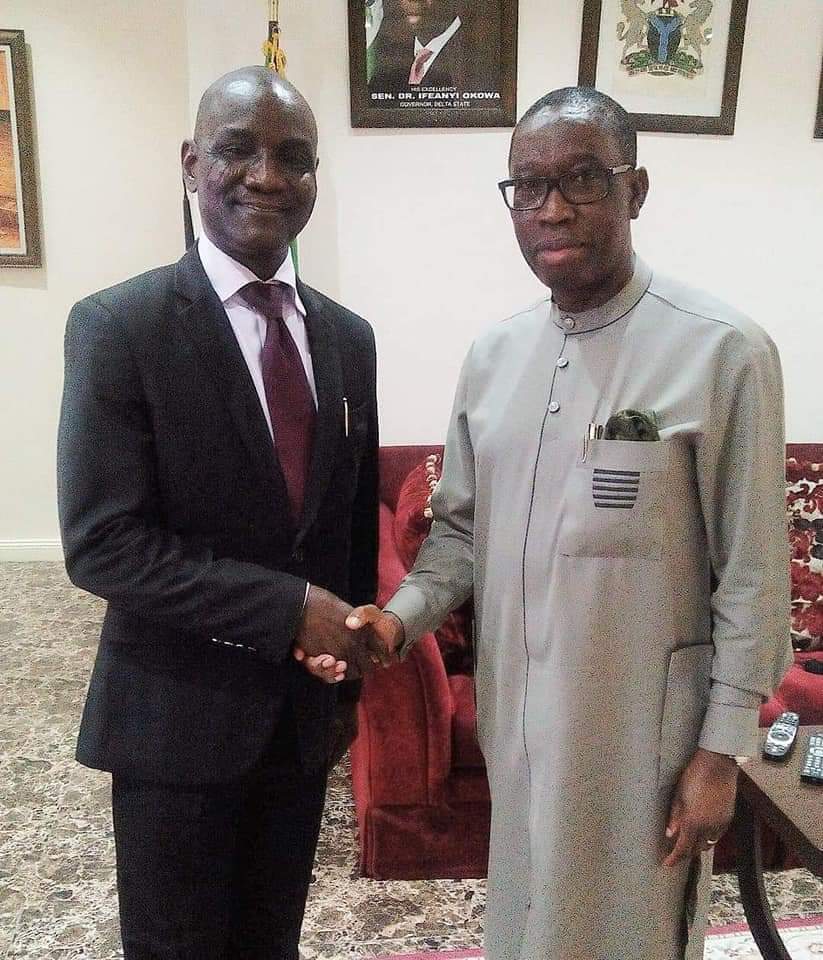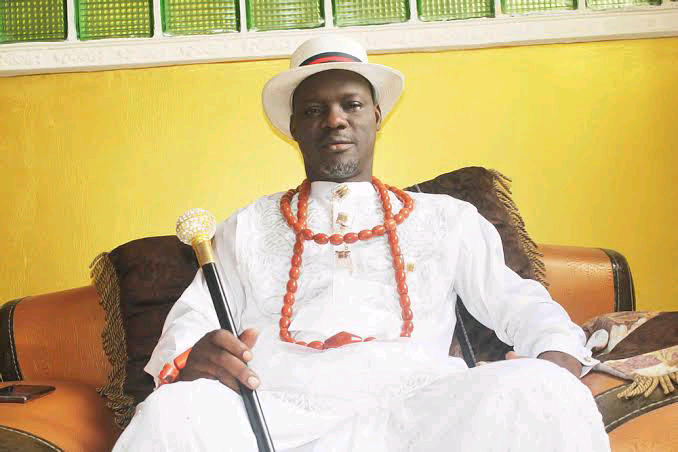News
ON THE LEADERSHIP QUESTION IN NIGERIA AND RESTORING GOOD GOVERNANCE

By Zik Gbemre
When we consider the type of politicking that is evident in Nigeria, be it before, during and after general elections, we would then realize that the ‘motives’ of most Nigerian politicians who have made up their minds to become political leaders; is never about ‘service’, neither is it about bringing any ground vision of rapid development of one’s community and country to square up with its counterpart anywhere in the world. If it were; and if the ‘motives’ were right, Nigeria would have undergone tremendous transformation since its attainment of democracy. Though, Nigeria has had its fair share of very few admirably-good political leaders in sensitive public office positions, but the number of those who are the bad eggs, far outweigh that of the good. And these bad eggs that are like sheep in wolves clothing, have created a system that prevents or makes it impossible for the good ones to come in to change the statuesque. The elites on the other hand, have also not been helping matters at all. But regardless of anything, in my own opinion, there is need for the good people to make themselves available to serve in different capacities of government. That is the only way we can change the narrative in the near or far future.
In a recent well-circulated interview clip of Malam Nasir El-Rufai, the controversial Kaduna State Governor made some valid points in respect to the subject matter, and I would like to quote him. According to El-Rufia: “If all the good people keep away from politics, who will be in politics? It’s a vacuum that is being filled by bad people. If all the good people go abroad, or join the private sector, who’s going to be in government – the people that are not so good. And this is what is happening. We are seeing an intersection of bad people in government, bad people in politics, and our country is running down, going down the drain. The few good ones that want to get in are tactically edged out because they are not a critical mass, there are only a few of them. When we were in government, there was just four of us then as Ministers who would stand up and say we disagree with President Obasanjo. There are 42 Ministers, but only about 4 that I remember, who would speak in Council against some of the things Obasanjo wanted to do, if we disagreed. Everybody else would keep quiet.
“This is the problem, when you pick people who have never achieved anything in their lives, and put them in these very senior government positions, they want to remain there forever. They would do anything to remain there. They would not tell the President the truth, they would not look at the Governor and tell him the truth, which is their job as Advisers because a Minister, is an adviser to the President.”
When asked, whose fault is it? Is it the leaders or the people? El-Rufai said: “It is a bit of both. But it is the fault of the elites in my opinion, I won’t say the people. In every society, the elites, those that are privileged with education, money or influence, are the ones that ought to sit down and set the tone for the structure of that society. If our elites have chosen not to go into politics and set that tone, as I said there’s a vacuum; the bad ones will take over. We have seen that in Nigeria… It is also true that the leader that picks those around him, is also culpable because you’re responsible for those you select. We are constrained to some extent because our Constitution says that the President must appoint a Minister from each State. But it doesn’t say that you should appoint a criminal from the State. It says that you should look for the best possible person and appoint as a Minister. So, there are constraints but still, I believe that in this country we have so much talent, if we are really looking for square pegs to put in square holes; we will find them…
“leaders must be checked. Power corrupts, absolute power corrupts absolutely. So, leaders must be checked. It is in their own interest to create a system that would ensure they are checked. If they are not checked, even good become bad people. I have seen that transformation in many people that I have worked with, or interacted with, that were really good when we worked together. Some of them have become Governors and Ministers and they have become monsters, because there is no checks and balance. Leaders must be checked throughout. So, it is not just the leader; the people must be able to speak out. They must complain. The elites must come and say this is not acceptable. But in this country, you have a conspiracy of silence by the elites. Everybody, just keeps quiet because everybody is just waiting for his turn. It is not taking us anywhere. We’re all going to be consumed by this crisis. This keg of grain powder that we are sitting on in which, 75% of the population is below the age of 35 years, they have no jobs, no hope, and they do not see a country that has never functioned as it should…”
We all would agree that the controversial Kaduna State Governor made some valid points in his quoted interview. Like I said, in my own opinion, good people should make themselves available to serve their people in whatever capacity they can, and at any level of government. It is a dangerous situation when majority of the Nigerian elites have become “YES PERSONS”, and they swallow and take the ‘nonsense’ dished by politicians and play the role of “coward elites”. I have been called a trouble maker by politicians, friends, elites and relatives just because I say it the way I see it no matter what and who is involved. El-Rufai has said the truth, whether we like him or not. Majority of political appointees in the country have failed because they have contributed majorly to the bad governance situation in Nigeria. They praise the State Governors and the President for doing practically nothing. They have taken praise-singing as a profession, even when it is obvious that their boss is doing the wrong things.
Truth is, all we have witnessed in Nigerian politics as far as we can remember, is nothing but political leaders and their Advisers/Senior Special Assistants (SSAs) who have made themselves ‘Public Masters’ rather than ‘Public Workers’. We have learned to judge Nigerian politicians by “what they do” and not by “what they say” – this is because often times, what comes out from the mouth of most Nigerian politicians never commensurate with what they eventually do in terms of actions and initiated/enacted policies. As it is in Nigeria, so it is in the whole of Africa, hence, we have remained a country/continent that is underdeveloped, stricken with poverty and lack, and always needing aides from developed societies. And this deplorable status of Nigeria and Africa, is caused by political leaders whose primary aim of being in politics is to become rich overnight.
Another point is that the issue of nepotism, favouritism, ethnicitism, religion and political affiliations have been the attributing factors that have made the nation not to have political leaders that ought to be elected/appointed on merit and qualification to effectively and efficiently lead the country to great heights. These issues, have ‘blinded’ both the government and the governed from making sound and good judgements in the appropriation of public resources for the good of all and sundry, particularly by those in authorities, and in demanding such when they are not getting it right by those being governed. In other words, it is as if our multi-cultural bearings have over the years, made us to be more self-serving/self-centered when it comes to governance and the appropriation of our collective wealth as a people in the entity called Nigeria.
Zik Gbemre.
National Coordinator
Niger Delta Peace Coalition (NDPC)


